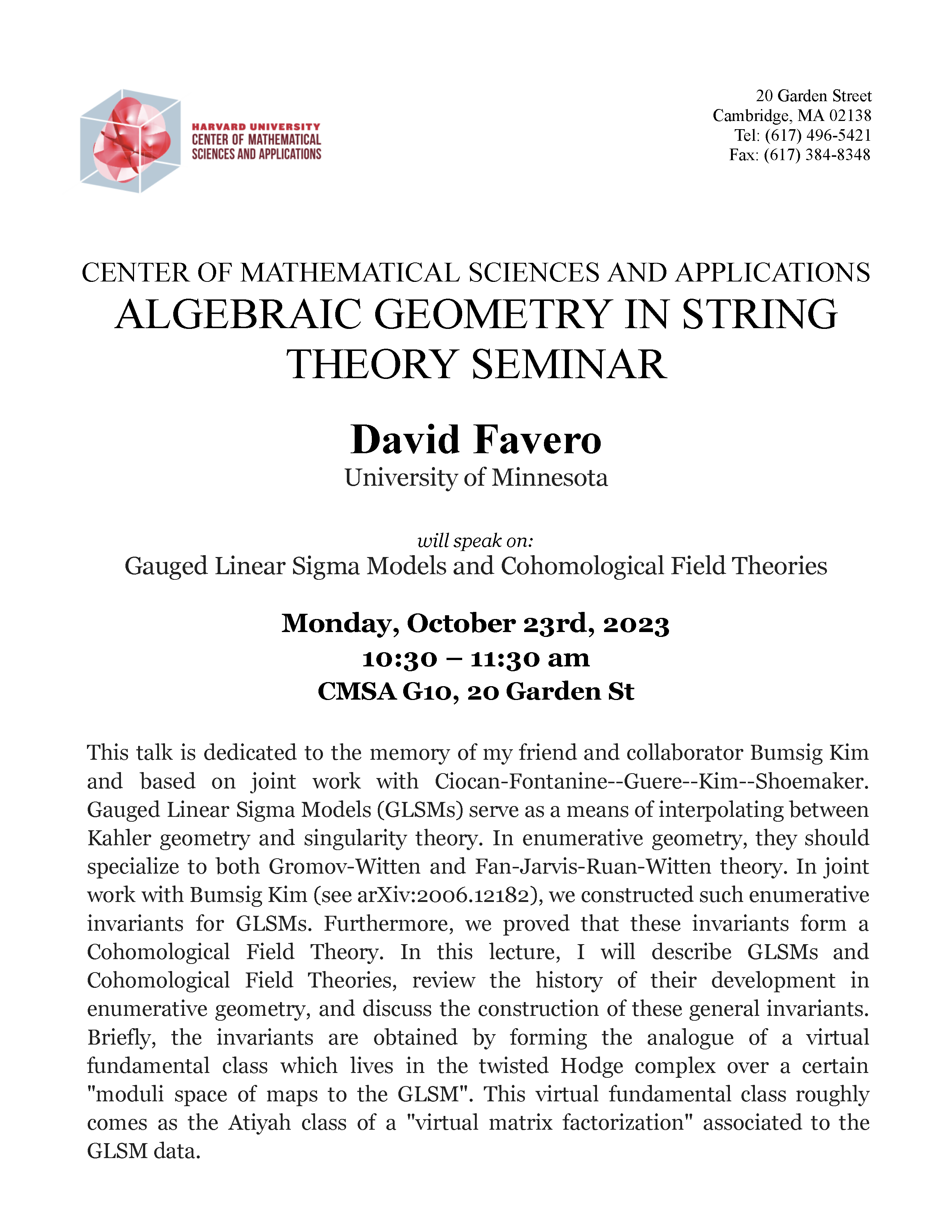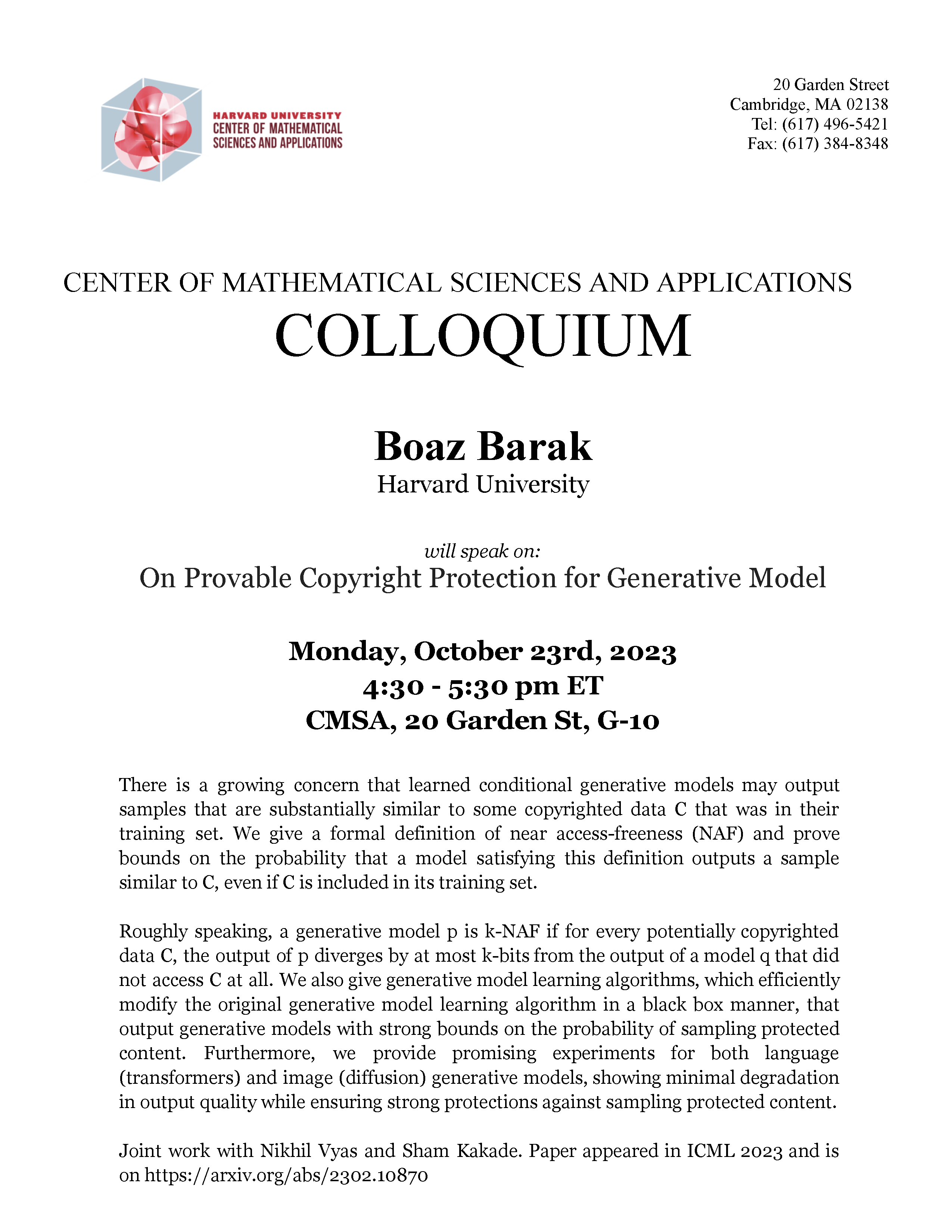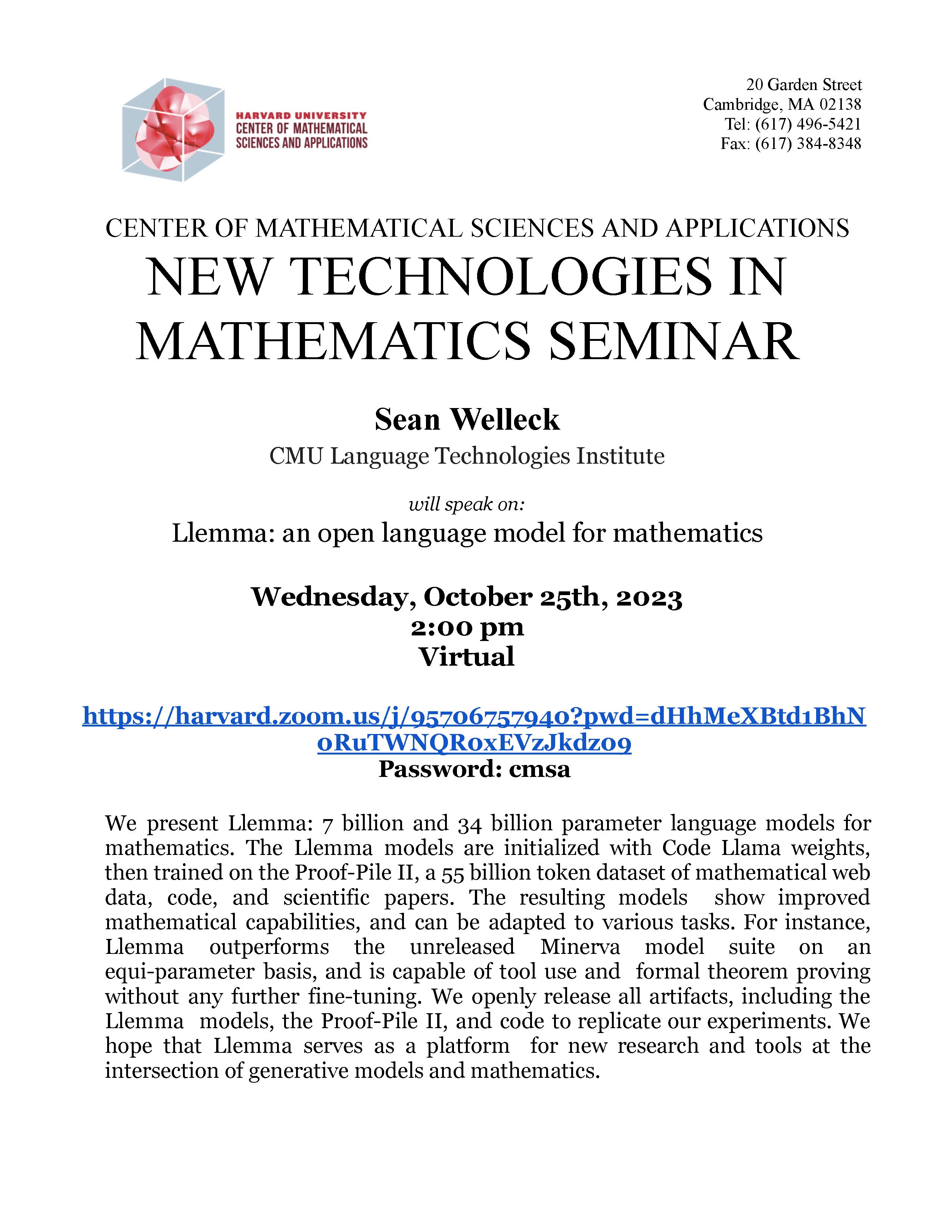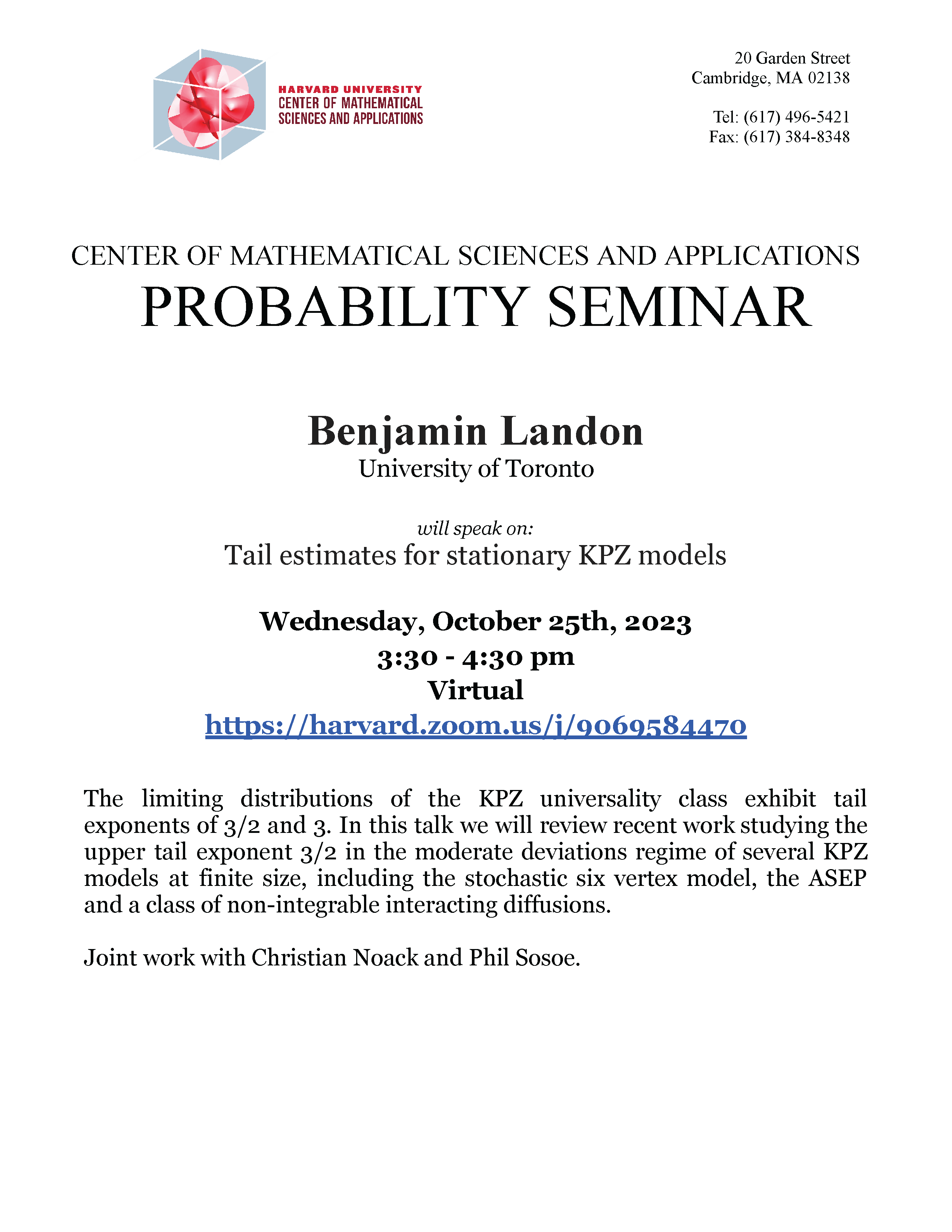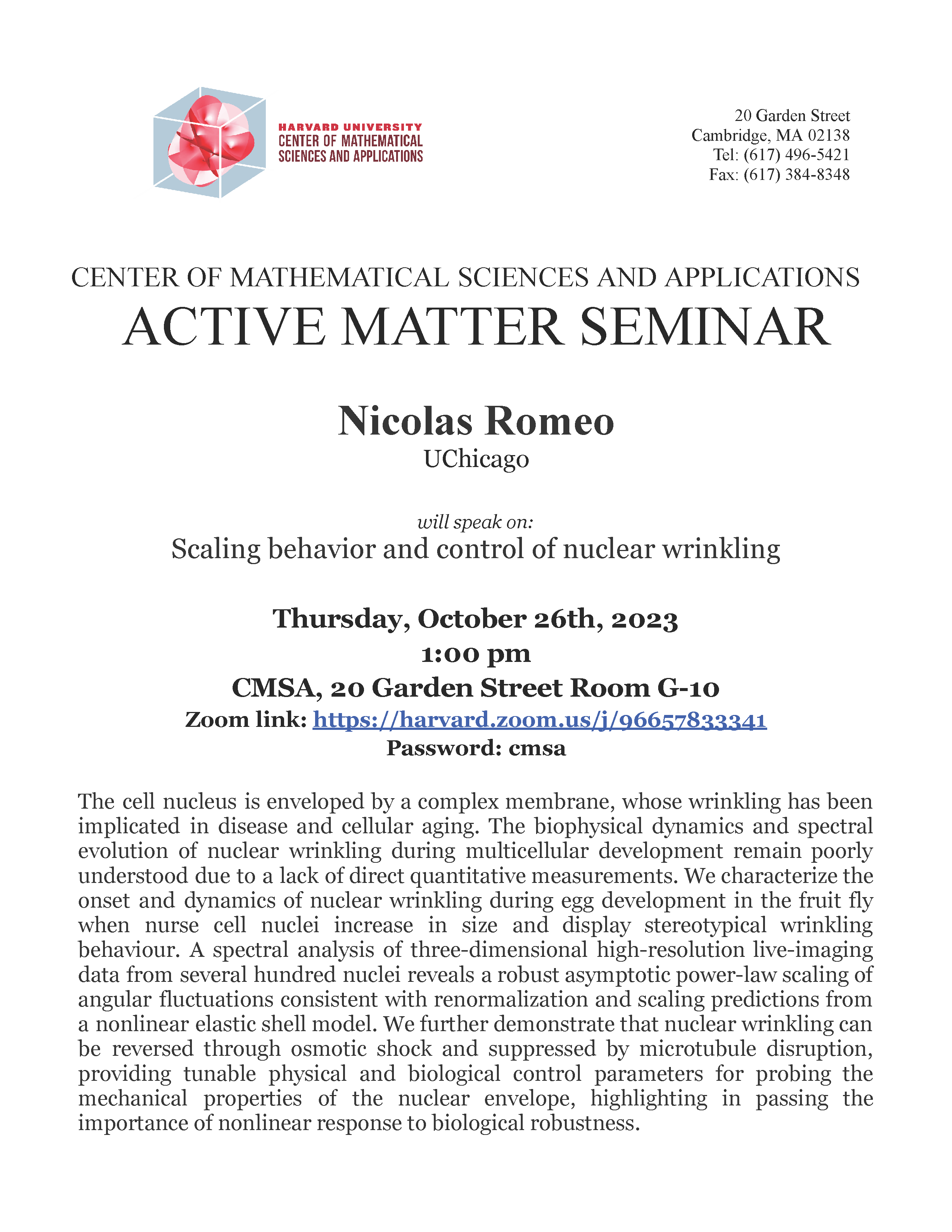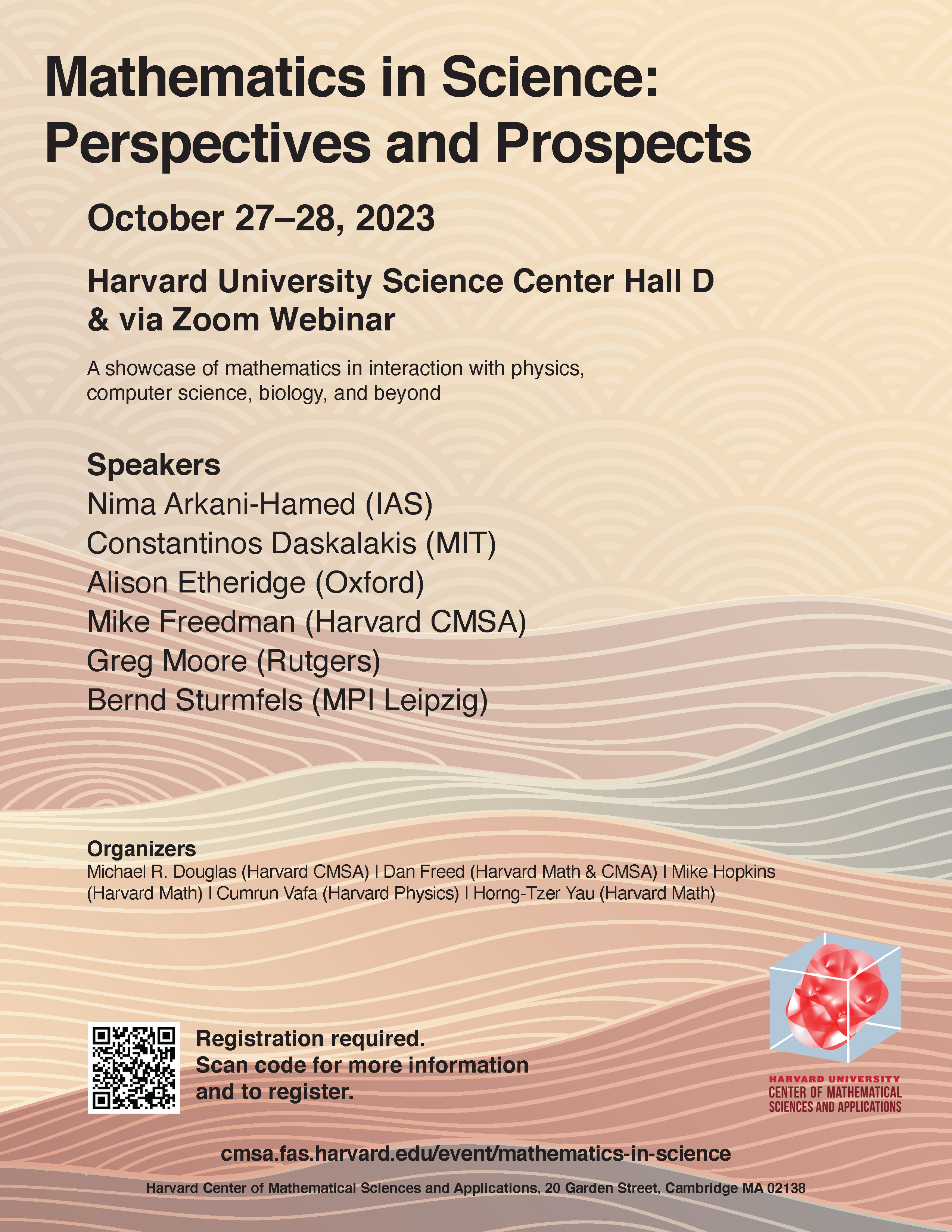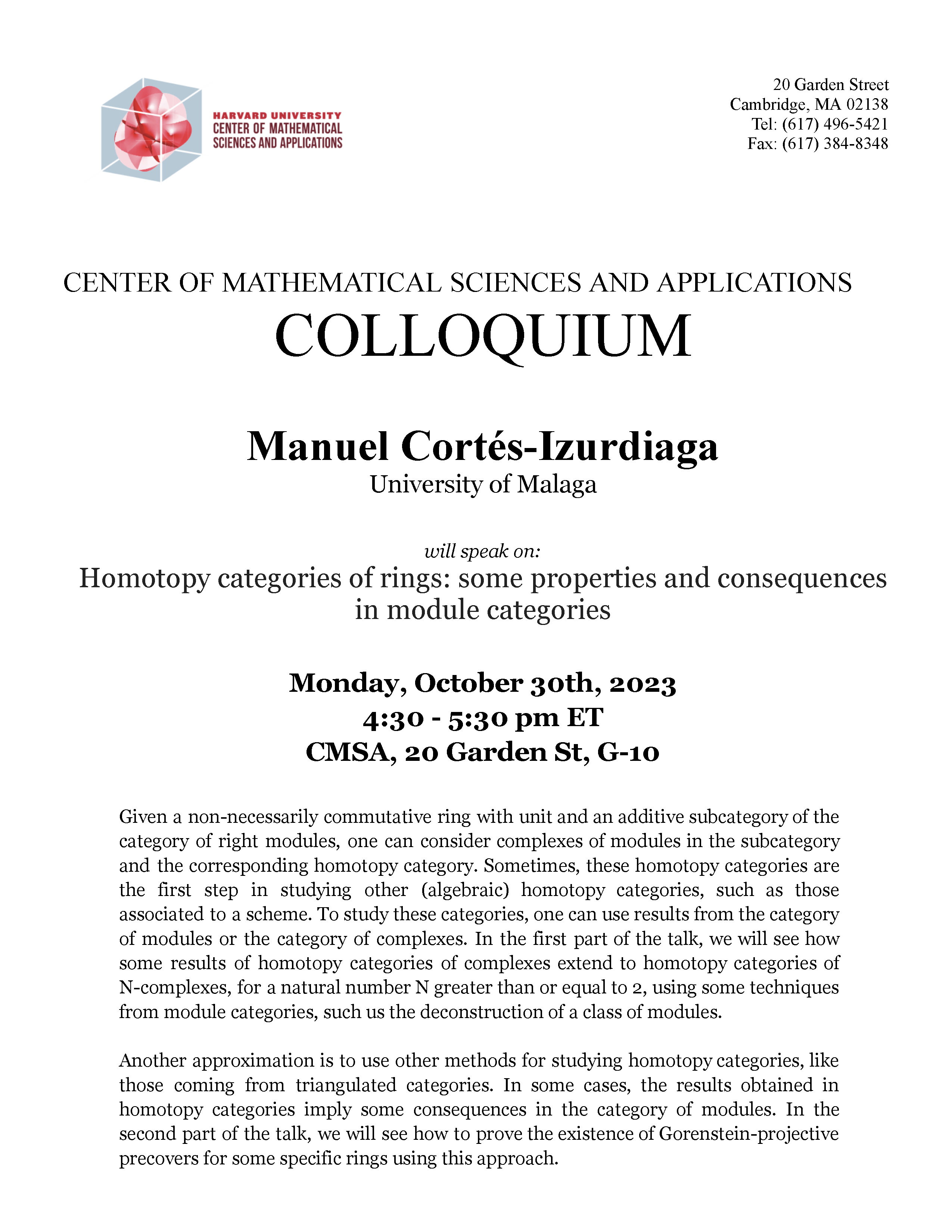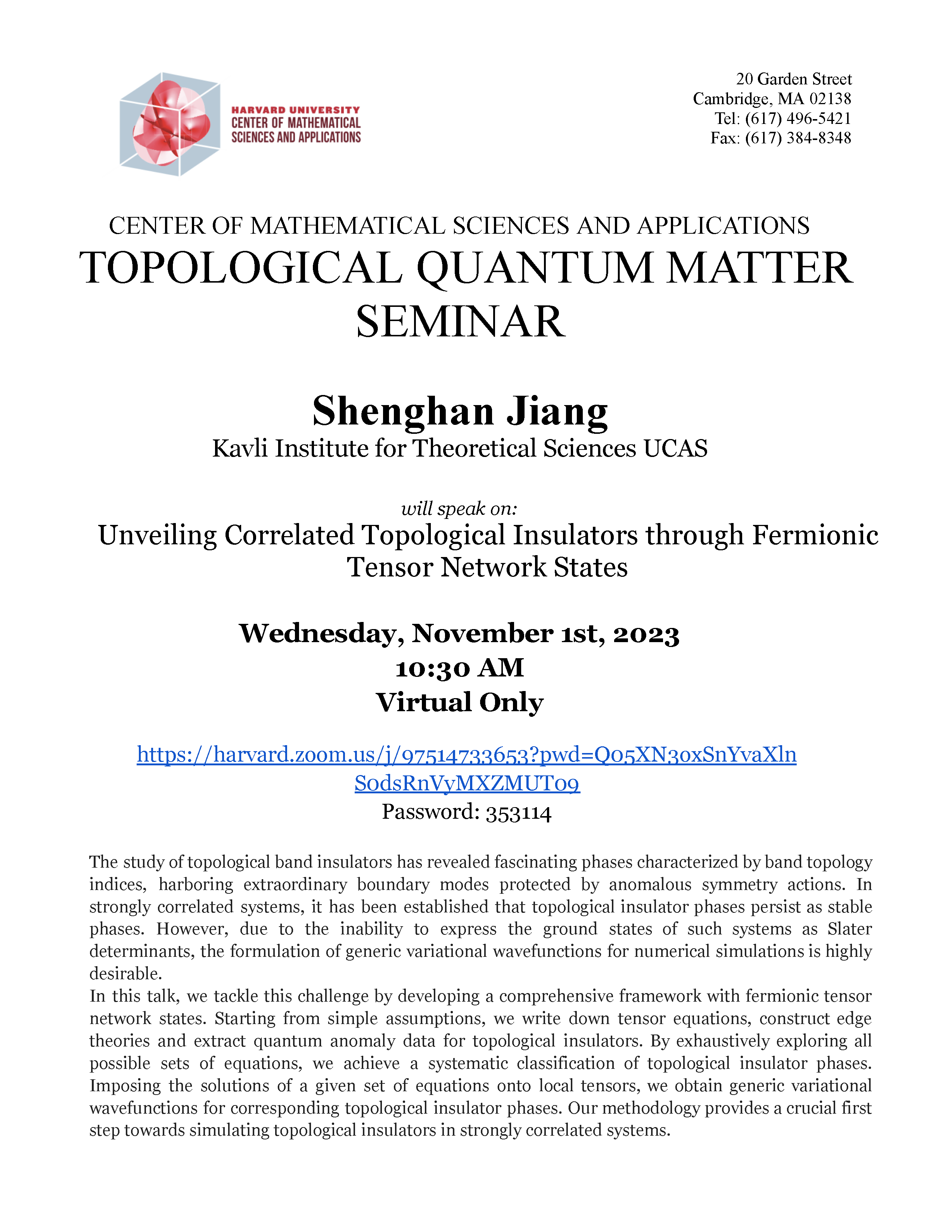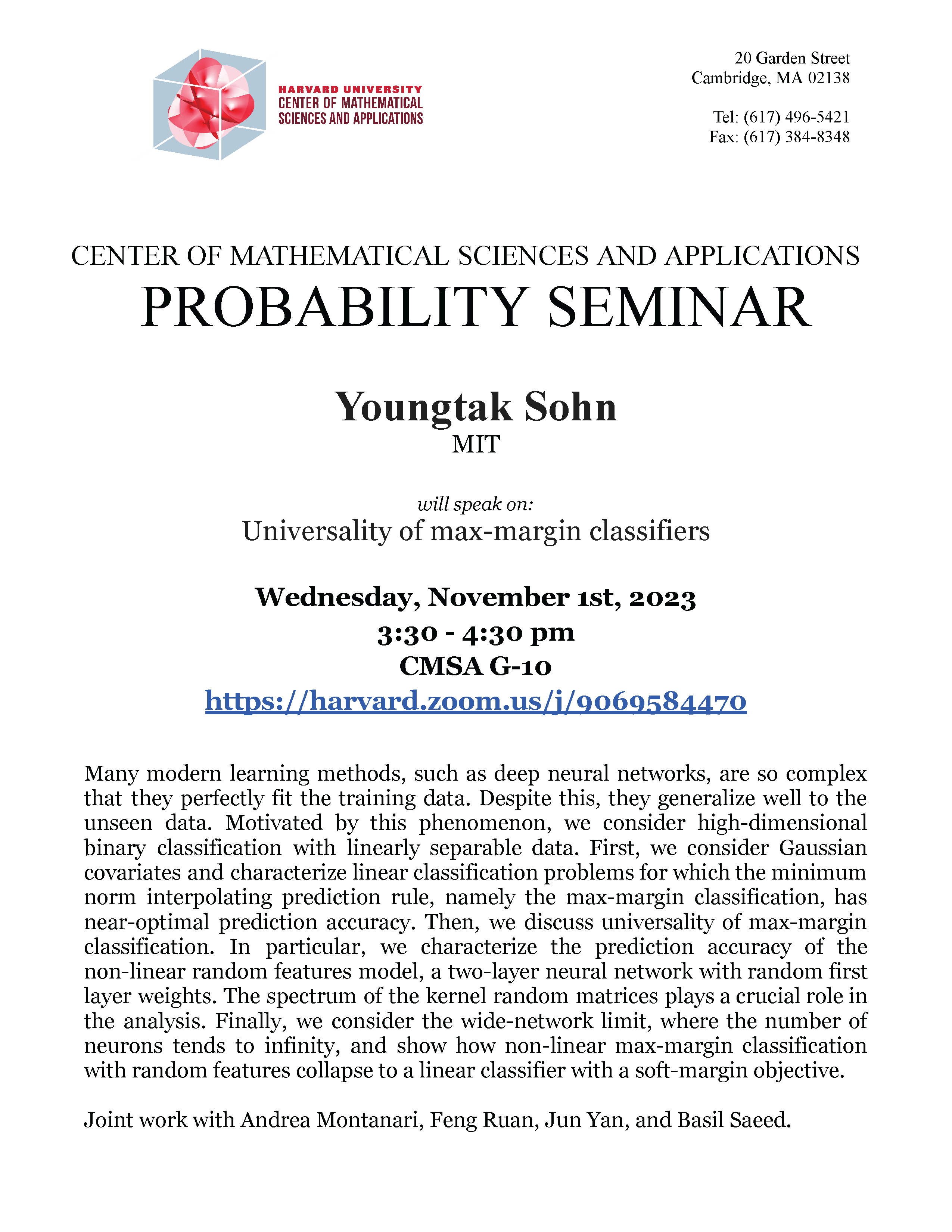Gauged Linear Sigma Models and Cohomological Field Theories
CMSA Room G10 CMSA, 20 Garden Street, Cambridge, MA, United StatesAlgebraic Geometry in String Theory Seminar Speaker: David Favero, University of Minnesota Title: Gauged Linear Sigma Models and Cohomological Field Theories Abstract: This talk is dedicated to the memory of my friend and collaborator Bumsig Kim and based on joint work with Ciocan-Fontanine-Guere-Kim-Shoemaker. Gauged Linear Sigma Models (GLSMs) serve as a means of interpolating between […]

